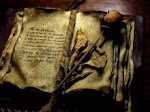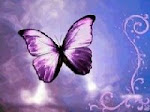‘Women should not be seen only through their sexuality’: Nigerian author Abubakar Adam Ibrahim on feminism and African literature
On the sidelines of the recently concluded Jaipur Literature Festival, Abubakar Adam Ibrahim spoke to indianexpress.com about all this, while shedding light on the regressive practices in Nigeria.
Writers Nadifa Mohamed, Abubakar Adam Ibrahim, Chika Unigwe at the Jaipur Literature Festival 2018 at Diggi Palace in Jaipur on Monday.
Nigerian author Abubakar Adam Ibrahim does not believe in mincing words. His debut novel Season of Crimson Blossoms, which won the NLNG Nigeria Prize for Literature, delved into the tabooed subject of women exploring their sexuality, flouting the conventions of the society in Nigeria. The protagonist in the novel Hajiya Binta Zubairu, a Muslim woman in conservative Nigeria has an affair with a man 30 years her younger. Zubairu stands for all the other women in northern Nigeria, who are bound by the shackles of patriarchy. But Ibrahim refuses to apportion this blame only to men. He feels women, in certain cases, by aiding the crime should also be held responsible.
On the sidelines of the recently concluded Jaipur Literature Festival, Ibrahim spoke to indianexpress.com about all this, while shedding light on the regressive practices in Nigeria.
Do you think claiming sexuality give women agency?
Do women need sexuality to gain agency? I don’t feel that women should be defined by their sexuality. I think women should be defined by the fact that they are people. Reducing conversations about women to their sexuality is demeaning. #MeToo is a very valid experience. There is a tendency to take advantage of women and it is very relevant that men too acknowledge that there is a problem somewhere. But I am not very sure that every conversation about women has to do with their sexuality. I see women as humans, first and not as as objects of desire. There are men who view women as instruments to fulfil their sexual urges. That approach is wrong. But having said women must claim their bodies, it is a way to talk to power.
But in your novel you have delved into the sexual urges of a middle-aged woman — a concept considered taboo in northern Nigeria. The protagonist has an affair with a man, 30 years her junior, as a way to reclaim her sexuality. In such a scenario where women are reclaiming what is rightfully theirs, do you think that is giving them agency?
I think it gives them liberty. It gives them freedom. It gives them the right to express how they feel. Forceful repression of women is not just a Nigerian problem, it is not an Indian problem. It is a problem everywhere and I think that it is the greatest scar that has ever been perpetuated in the history of the world — this collective will and desire to suppress women sexuality. And it has always been there. Read The Scarlet Letter, for instance. The woman who has sex with a man ends up in trouble, while the man is free. It is always women who are subjected to the demands of the society when it comes to conversations about sex. It is a very complex dynamic and I marvel at the energy people put into suppressing the sexual urges of women. If they even put half of that energy into developing the world, I am telling you we are going to be completely different people. But we have men like Harvey Weinstein and others to use their power to exploit women, use their bodies against them, shaming people for having certain body parts.
As a male author writing about women, how do you overcome the ‘male gaze’?
I remain truthful to my characters. For me, that is the most important thing. Because no two women are the same and no two men are the same. But my character is my character and this is who she is. I did worry that after writing the book I would be accused of appropriation by women. But, thankfully, that did not happen.
What is the condition and status of women in northern Nigerian society?
In Nigeria, the situation is so restrictive and conservative that there is a practice of women not acknowledging their children. They do not call them by their first names. They never do that and maintain distance from them. As by doing that or by loving their child, they would be, in a way, acknowledging their sexual experiences that they might have had enjoyed. People who are more conservative do not even acknowledge their second children with their names. They call them, “a boy” or “come here”. I have grown up seeing that and it cuts across different cultures. It is very bizarre and it had influence on a lot of people. However, now it is no longer that prevalent. People in my generation have been brought up differently. For us, it might not be a factor but there is a girl I knew, we grew up together and her mother never calls her by her name. But the same is not expected of a father neither it is an obligation for him. But if a mother does not do that then she is called “shameless”. And a lot of them who do that are women.
Do you think the biggest achievement of patriarchy has been to make women gate keepers of it?
Is it men who made women gate keepers of patriarchy? I don’t know. But whatever it is, women decided to assist the subjugation of other women. I do not want to apportion blame. But for me the perpetrator and the the one who aided in the crime are equally responsible. And that could be men or women. For instance in the case of slavery, you might want to think that it was all the fault of the West but Africans too helped in the slave trade. They helped the West to capture people from other places and brought to the white men.
Then do you think the fault lies in both men and women?
Absolutely. There is no denying that. Some women are very conscious of what they are doing. You may say that there is some economic dynamic involved. Maybe they want resources and the resources are controlled by men so they are kind of playing this subservient role. But they are conscious of what they are doing.
But maybe it is because that is all that they can do so, perhaps?
If it is so then is it fair to say that Africans who assisted in slavery are faultless? It is all about the economics, right? They too wanted something from the white men. And even in the case of women, you look at the dynamics of a situation and wonder how can a man benefit from this? For instance in Southern Nigeria, after her husband’s death the wife has to go through a process of cleansing to prove that she is not responsible for her husband’s death. In some cultures they wash the body parts of the dead body and make the woman drink it. And then they lock her in the room for seven days. If she does not die then she is guiltless. If she does then it is believed that it is the husband’s spirit that killed her. Now, it is women who enforce these things.
What is your definition of feminism?
Feminism is a broad issue. I consider myself as a feminist but it does not mean that I agree to every aspect of feminism. I believe in the equality of the sexes and I do not see women through their sexuality. I view women as humans. But there are certain aspects of feminism that are presumptuous, that make assumptions for the rest of the women. It decides what is liberal and what is not. I do not agree to that. I view women as humans first. I write because if you peel off the skin colour, we are all essentially the same. And if anyone reading my work relates to the humanity then for me the job is done.
Are there any restrictions you face as an African author? And who are your favourite Indian authors?
Being an author from Africa there is an expectation that you will write about wars, slavery and poverty. That is the Africa is projected in the media – there is crisis and hunger. But that is not all there is to Africa. For me what is interesting is how people deal with the after effects of war. I am interested in people who have sex because they want to. These too are reality of life but there are not reflected in media. To reduce our experiences to only war and poverty is not fair.
Among the Indian authors I enjoy reading Arvind Adiga’s work. I also enjoy the lush prose of Arundhati Roy.
For all the latest Lifestyle News, download Indian Express App
© IE Online Media Services Pvt Ltd




















No hay comentarios:
Publicar un comentario